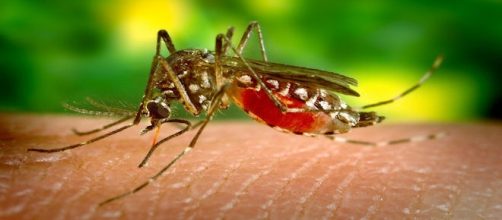Health experts and officials from the Centers for Disease Control (CDC) have confirmed a case of Zika virus infection in Houston, Texas. The infected individual arrived in Houston from El Salvador where the Zika virus is known to spread through mosquito bites.
Zika made the news recently when a mother in Hawaii gave birth to a child with microcephaly, a condition causing an infant's head to be smaller than normal. Two species of Aedes mosquitoes carry the virus that has spread rapidly throughout South and Central America. The infection usually presents symptoms similar to the flu, and is most harmful to the babies of pregnant victims.
Mosquitoesbreed rapidly in poverty stricken areas where standing water is almost always available. Old tires, trash, and any open container that holds water are perfect areas for mosquitoes to find a place to breed. Officials in Houston recommend an immediate response program to look for and destroy mosquito infestations as the virus may spread quite rapidly in Texas, then outward to other states.
Avoiding mosquito bites is the only way to avoid infection from one of the most dangerous insects known to man. Mosquitoes are known to carry West Nile virus, dengue fever, malaria, and many more serious transmittable diseases.
Ways to avoid bites
- stay indoors behind screened windows
- do not allow standing water to accumulate around homes and neighborhoods
- use recommended mosquito repellent approved by the EPA (Environmental Protection Agency)
Symptoms of viral infections include a rash, muscle aches, and joint pain.
In light of the diagnosis in Houston, anyone presenting with these or other flu-like symptoms should be evaluated for the Zika virus, especially pregnant women or women of child bearing age who may become pregnant. Doctors and clinics need to be aware of the current diagnosis and send suspected samples in for testing to the county health department or the CDC.
At this time, the virus has not spread to or from anyone in the continental United States, but mosquitoes could feed on an infected individual arriving here from Central America and carry the virus to other areas.

